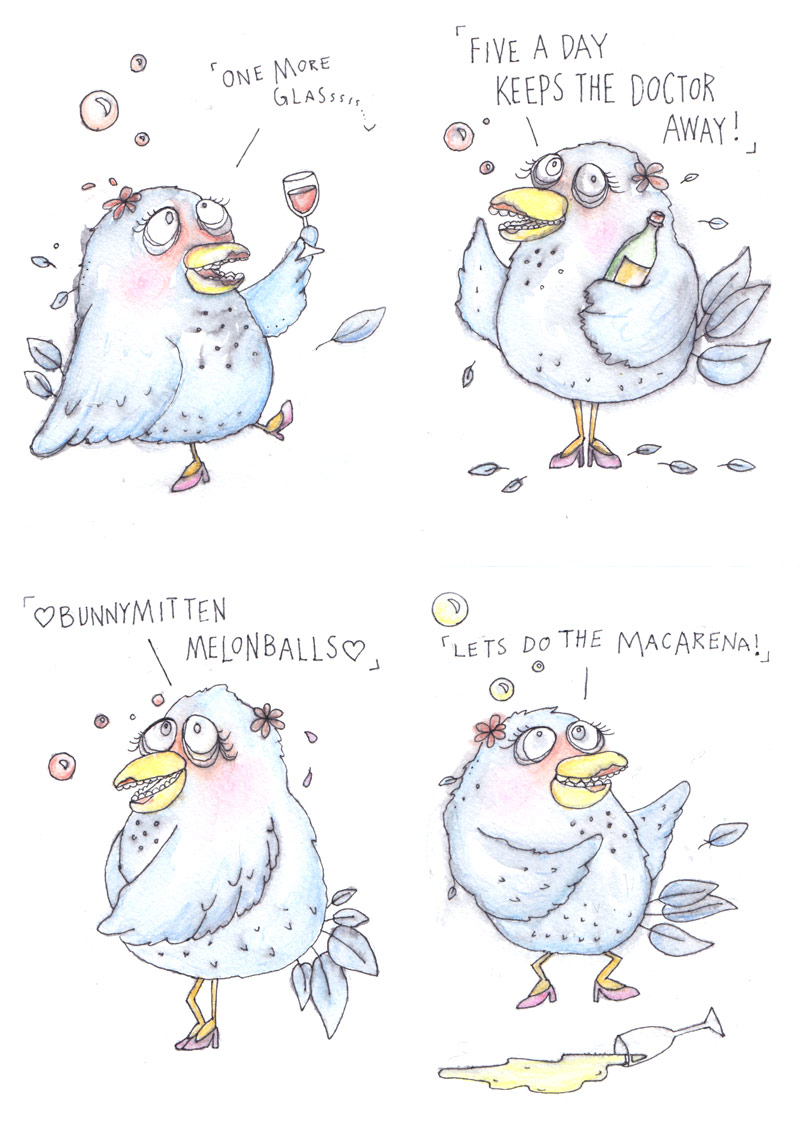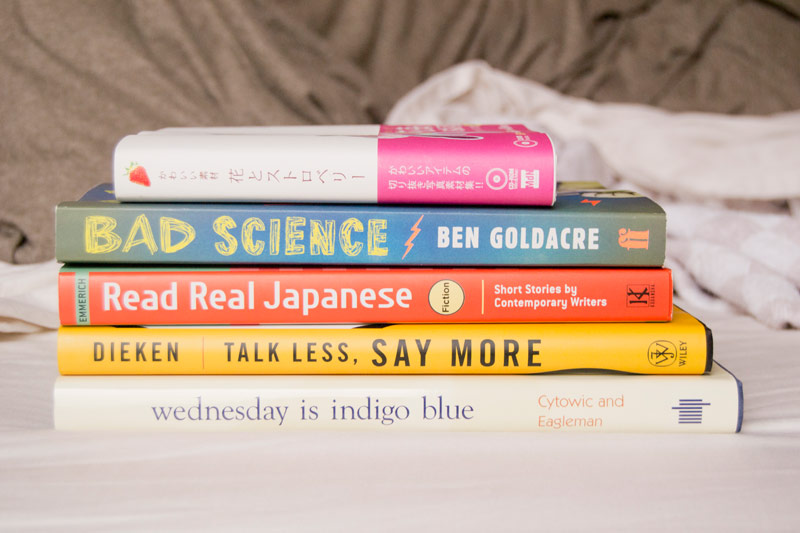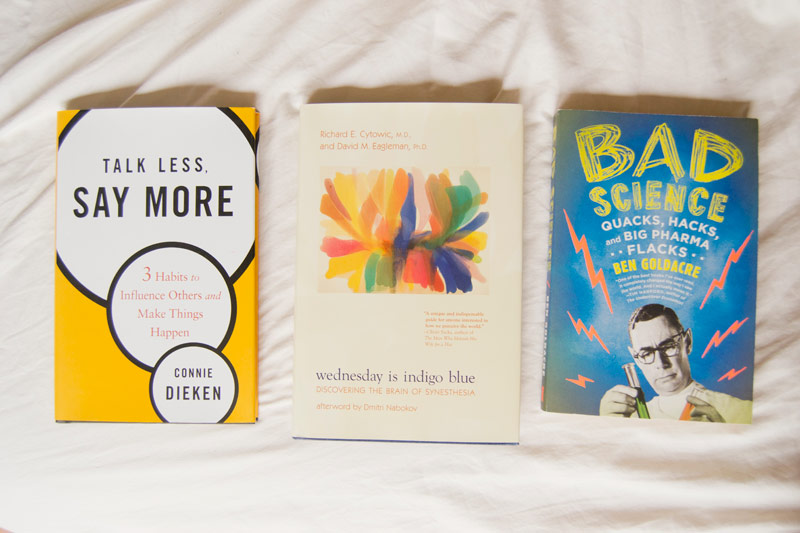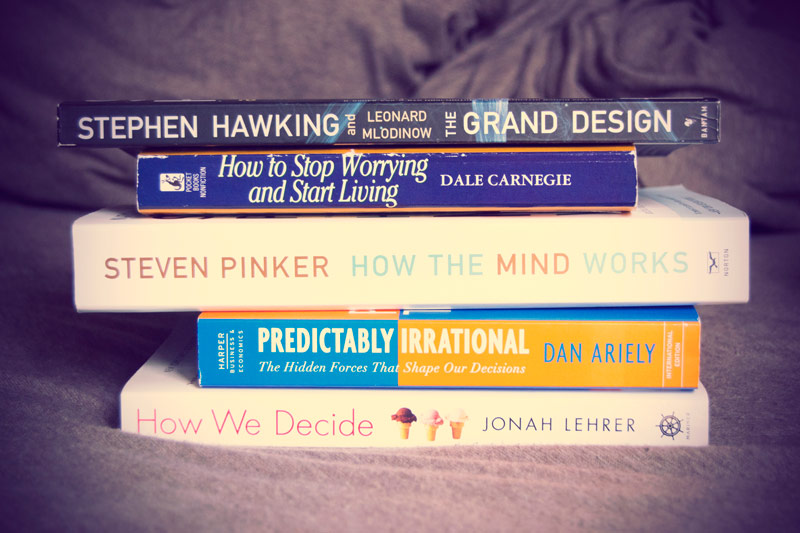
I have been wanting to make a book post for a little while now, here are some of the books I am planning to plow through this summer. Binka wrote a good entry (Norwegian) a little while ago, admitting to not be the most avid reader, and I definitely fall into the same category, at least when it comes to fiction. I simply can.not.read.fiction anymore. I used to read a lot of it. I am not sure what happened. It is not that I do not want to, but there is just nothing that holds my interest long enough for me to finish a fiction book. I have been in this state for about 2 years, and it does not seem to change any time soon. I have solved the problem by reading non-fiction, for some reason I have absolutely no problem getting through books as long as I feel like I learn something concrete. (I am not implying that you do not learn things from fiction, I am merely saying that I do not have the patience for them these days.) So here are some non-fiction books I will be reading this summer:
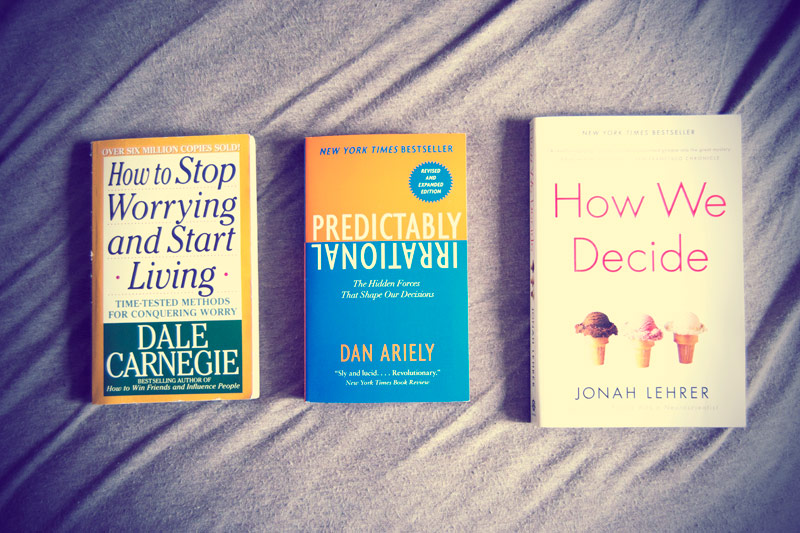
Dale Carnegie – How to Stop Worrying and Start Living: I definitely belong to the group of the population that worries too much, but I am working on it, and I have made an active choice and change it. As Mark Twain said; “I’ve had thousands of problems in my life, most of which never actually happened”. Now I am trying to find books and solutions to the whole cycle of worrying. This Dale Carnegie book seems pretty straightforward and useful, with concrete examples and good structure.
Dan Ariely – Predictably Irrational: Dan Ariely is my absolute favorite speaker I have heard from TED conferences, and he actually makes behavioral economics fun. He explains why we behave irrational and make bad choices for ourself – again and again – in a highly predictable pattern. All of his work is based on experiments, and the way he describes them makes it fun and easy to read. I read the first 91 pages today while drinking coffee, and I can not wait to read the rest of the book. Highly recommended if you are interested in human behavior and choice!
Jonah Lehrer – How We Decide: I do not know much about this book yet, but the beginning of it seems promising. Jonah Lehrer explains why we in fact need our emotional side in order to make choices at all. This is an excerpt from amazon.com: “Our best decisions are a finely tuned blend of both feeling and reason and the precise mix depends on the situation. When buying a house, for example, it’s best to let our unconscious mull over the many variables. But when we’re picking a stock, intuition often leads us astray. The trick is to determine when to use the different parts of the brain, and to do this, we need to think harder (and smarter) about how we think.”
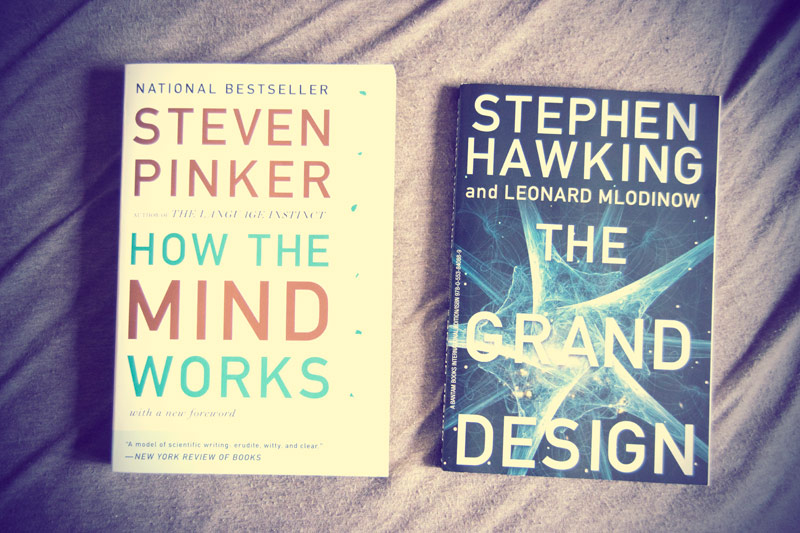
Steven Pinker – How the Mind Works: I have to be honest, I don’t particularly like the way Steven Pinker writes – he uses a lot of words to get to his points. However, when he gets to his points, and he does, it is a really great read. From amazon.com: “MIT’s Pinker, who received considerable acclaim for The Language Instinct, turns his attention to how the mind functions and how and why it evolved as it did. The author relies primarily on the computational theory of mind and the theory of the natural selection of replicators to explain how the mind perceives, reasons, interacts socially, experiences varied emotions, creates, and philosophizes. Drawing upon theory and research from a variety of disciplines (most notably cognitive science and evolutionary biology) and using the principle of “reverse-engineering,” Pinker speculates on what the mind was designed to do and how it has evolved into a system of “psychological faculties or mental modules.””
Stephen Hawking – The Grand Design: I am so looking forward to reading this book! Since i haven’t read it myself yet, here is a clip from amazon.com: “In The Grand Design we explain why, according to quantum theory, the cosmos does not have just a single existence, or history, but rather that every possible history of the universe exists simultaneously. We question the conventional concept of reality, posing instead a “model-dependent” theory of reality. We discuss how the laws of our particular universe are extraordinarily finely tuned so as to allow for our existence, and show why quantum theory predicts the multiverse–the idea that ours is just one of many universes that appeared spontaneously out of nothing, each with different laws of nature.”
If any of you have any good recommendations for non-fiction books, I would love to hear them! I am interested in everything from math and science to psychology and emotions, but I have a particular soft spot for anything that has to do with the human mind.




